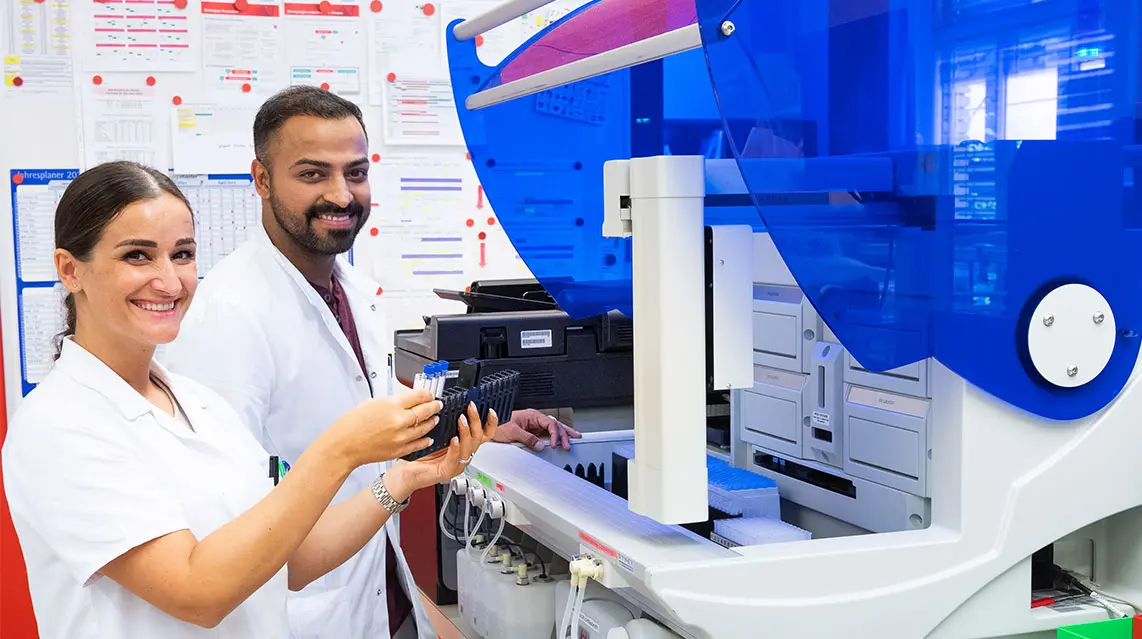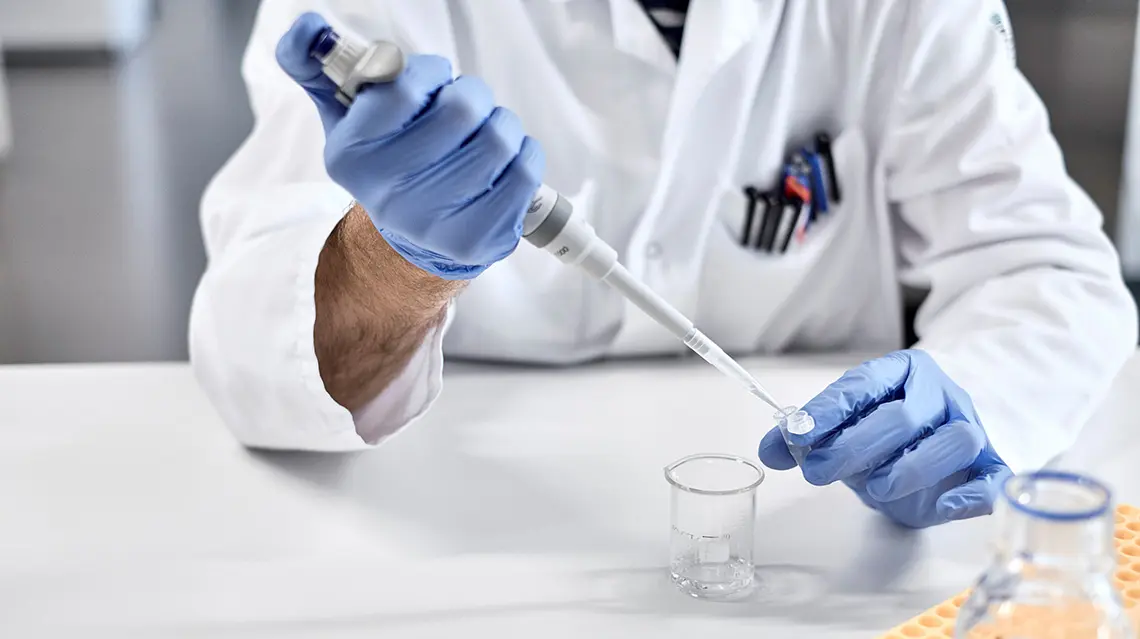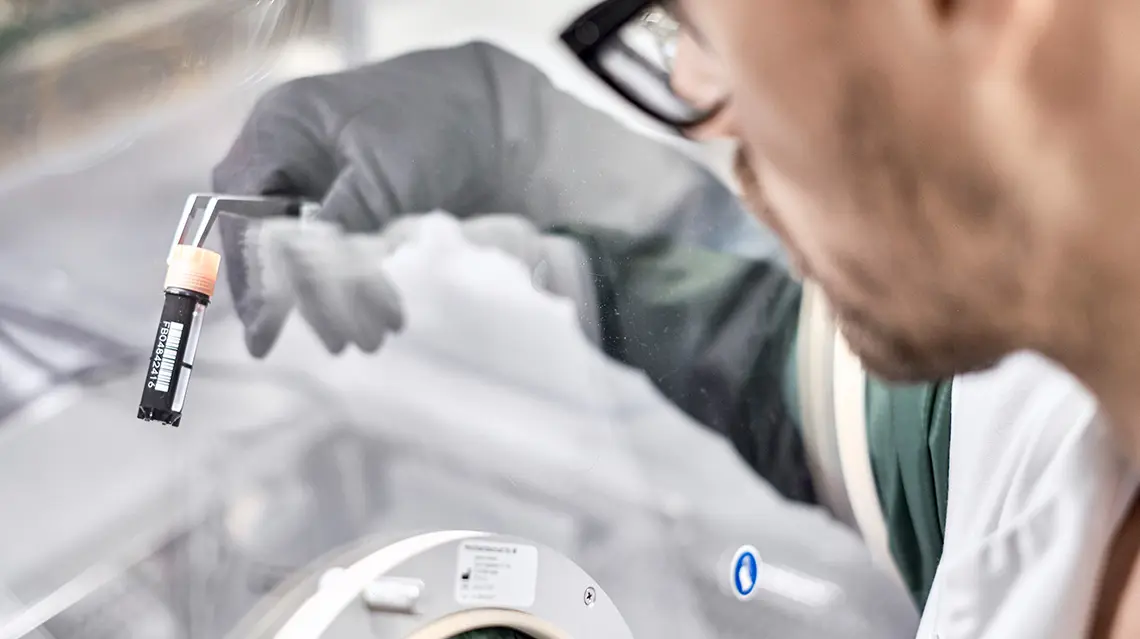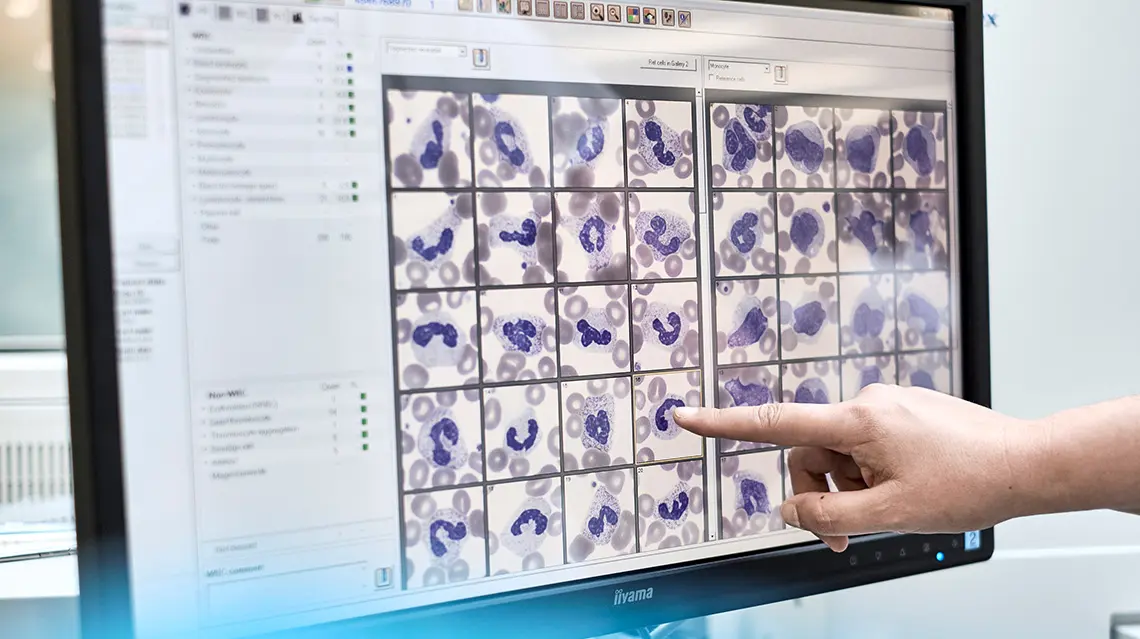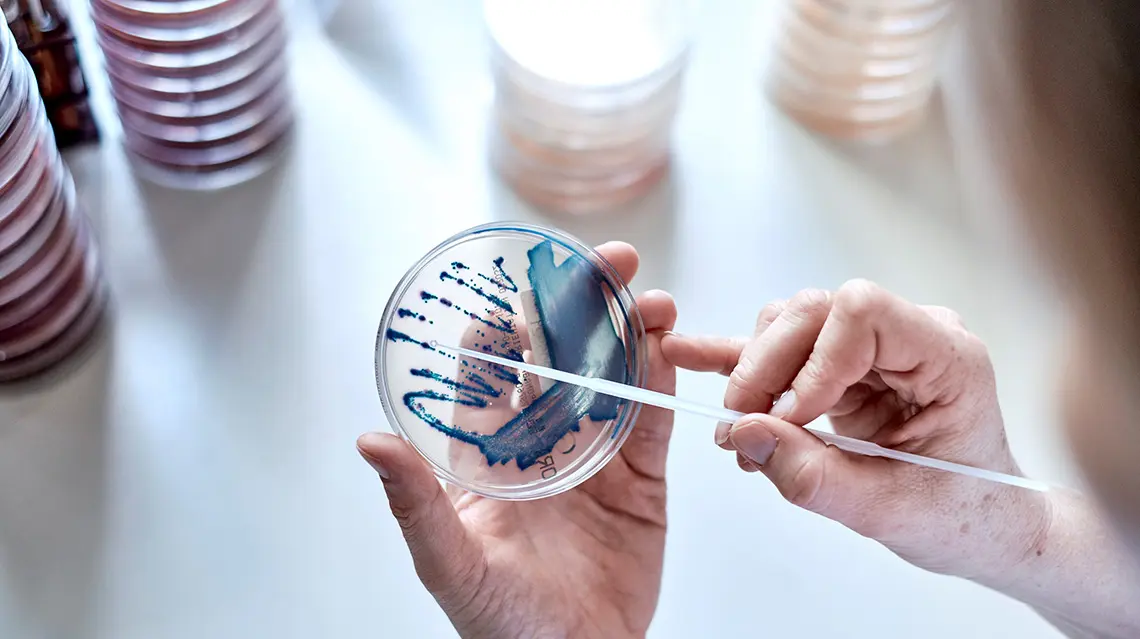Bachelor studies Biomedical Laboratory Diagnostics
A course of study unique in Switzerland in cooperation with the ZHAW Department of Health. The practice-oriented study programme is modular and has a share of over 25 percent professional internships.
"Biomedical laboratory diagnostics is where scientific and medical research meets practical application and state-of-the-art technology. With its different fields of expertise, it is versatile and constantly evolving. In the medical laboratory, we provide the facts on the basis of which medical diagnoses are made. The ZHAW's novel, interdisciplinary degree programme prepares students for the demanding and extremely dynamic working environment of medical laboratories." Antoinette Monn, Head of Haematology Department, Zurich Triemli City Hospital
What is Biomedical Laboratory Diagnostics?
The Biomedical Laboratory Diagnostics degree programme is a Swiss-wide novelty. It meets the growing social and technical demands on diagnostics and healthcare and thus makes an important contribution to maintaining the health and quality of life of the entire population. The cooperation between the Departments of Life Sciences and Facility Management and Health combines high scientific-technical demands with the ways of thinking and acting of a health profession.
At the interface of biomedicine, laboratory analytics, new digital possibilities and patient welfare, you as graduates of the bachelor in Biomedical Laboratory Diagnostics will take on a decisive role in the future.
Language
The majority of classes in the Bachelor's programmes are taught in German. As a visiting student, you need a language level of B2 in the language in which your programme is taught.
Educational objectives
The Bachelor's degree qualifies you to practice the profession of biomedical laboratory diagnostics. With professional experience and appropriate further training, you can then take on tasks in management, education and research. Further training opportunities include, for example, a Master's degree at home or abroad.
Study programme and structure
The degree programme prepares you for a developmental role in the medical laboratory, in biomedical research and development and in biomedical diagnostics.
You will be taught the current knowledge of relevant subject areas from the natural sciences and medicine, so that you can specifically use the entire biomedical analysis spectrum in practice. The close cooperation with the Department of Health is unique, where practical relevance, knowledge and skills of a health profession as well as interprofessional action are taught. With a solid scientific foundation, you will not only be prepared for your subject-specific studies, but also for the lifelong learning at university level required for practising the profession, in order to be able to integrate innovations in medical diagnostics, research and technology into everyday professional life. The degree qualifies you to take responsibility for analyses. You will learn to recognise that the results of your analyses have a direct impact on the health and well-being of patients as well as on further patient management. The study programme provides you with the necessary self-competences to act successfully even in crisis situations under pressure.
You will be prepared for your tasks in carrying out measurements and investigations independently and on your own responsibility. This also includes the selection of methods and equipment as well as the evaluation, assessment, presentation and communication of the results. In addition, you will learn to develop and evaluate new diagnostic methods and to introduce them into routine analysis. Accordingly, the quality assurance of biomedical analytics, the validation and presentation of results, the evaluation of new methods and techniques, the application of equipment as well as the organisation of the laboratory are among the focal points of the study programme.
Career prospects
Graduates of the Biomedical Laboratory Diagnostics programme represent a multidisciplinary approach and a better understanding of human health and disease. Following the health professions and the CanMEDS reference model, the degree qualifies graduates for seven professional roles.
- As experts, biomedical laboratory diagnosticians carry out the activities specific to their profession, assume professional responsibility in the health system in their professional field and make appropriate decisions and assessments.
- As communicators, biomedical laboratory diagnosticians facilitate trusting relationships in their environment and pass on information in a targeted manner.
- As team workers, biomedical laboratory diagnosticians participate effectively within an interdisciplinary and interprofessional team.
- As managers, biomedical laboratory diagnosticians provide professional leadership, contribute to the effectiveness of the organisation and develop their own professional careers.
- Biomedical Laboratory Diagnosticians responsibly rely on the expertise of Health Advocates. They use their influence to promote the health and quality of life of patients/clients and society as a whole.
- As learners and educators, Biomedical Laboratory Diagnosticians are committed to lifelong learning based on reflective practice, and to the development, sharing and application of evidence-based knowledge.
- As professionals, biomedical laboratory diagnosticians are committed to the health and quality of life of individuals and society. They are committed to ethics and care for their own health.
Conditions for acceptance
Persons with an apprenticeship and vocational baccalaureate related to the field of study can take up the degree programme directly. Persons with a professional apprenticeship and baccalaureate or an HF diploma in an unrelated professional field as well as persons with a baccalaureate from a grammar school or a specialised baccalaureate must provide evidence of one year's work experience in a related professional field. Biomedical analysts with an HF diploma obtain a Bachelor's degree (90 ECTS) in three to four semesters.
Further information
Do you have any questions?
This might also interest you
Support services
Preparation and assistance for students in the fields of natural science, physics, maths or IT.
Preparing to bachelor studies
We provide additional preparatory support courses for individual preparation (only in German).
Registration bachelor's programme
Support services
Preparing to bachelor studies
Ready for a new chapter in your life? Apply now.
Preparation and assistance for students in the fields of natural science, physics, maths or IT.
We provide additional preparatory support courses for individual preparation (only in German).
